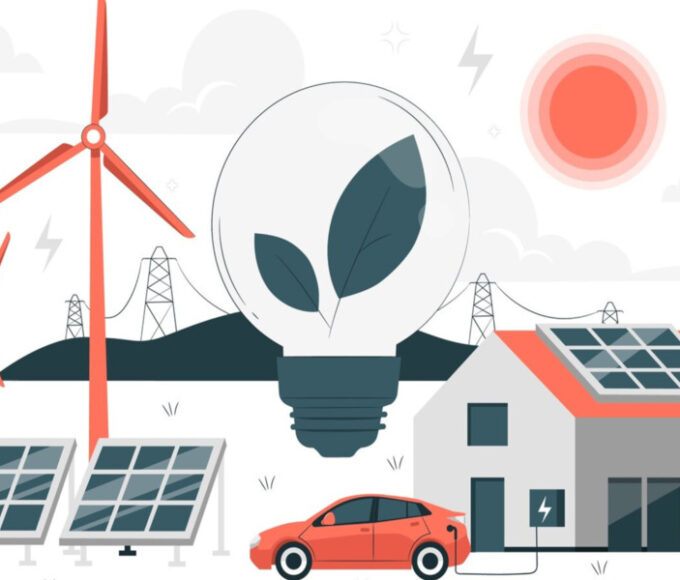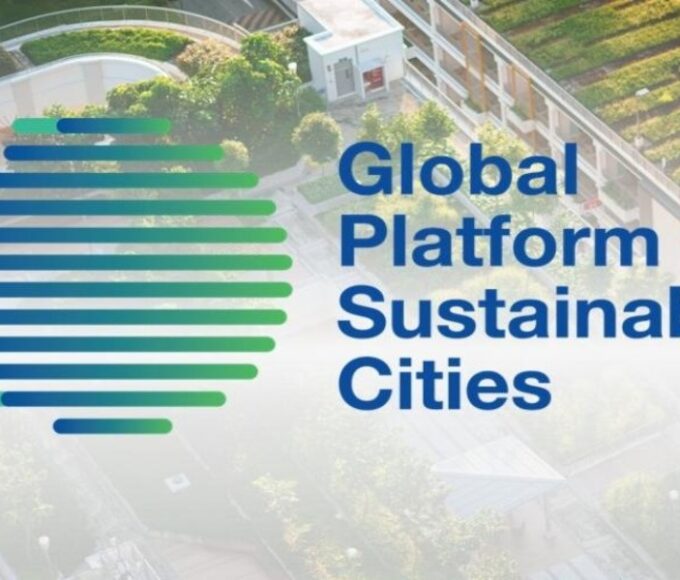IMD Identifies Key Sustainability Trends for 2025

The International Institute for Management Development (IMD) has released a new report highlighting key sustainability trends that are expected to shape global business practices by 2025. As the world continues to grapple with climate change, resource depletion, and growing environmental concerns, the focus on sustainable development is intensifying. IMD’s insights offer a roadmap for businesses looking to align their strategies with the growing demand for environmental responsibility, ethical practices, and social equity.
1. Corporate Sustainability Becomes a Competitive Advantage
In its report, IMD emphasizes that sustainability is no longer just a buzzword or regulatory requirement but a key differentiator for businesses. Companies that adopt sustainable practices are expected to gain a competitive edge in attracting investors, customers, and talent. As consumers and stakeholders increasingly demand transparency, ethical operations, and responsible production, businesses that fail to address sustainability risks losing market share.
IMD points out that by 2025, a strong commitment to sustainability will be seen as an essential part of a company’s value proposition. This shift will encourage more companies to integrate sustainability into their business models, ensuring that environmental and social considerations are embedded in their operations.
2. The Rise of Circular Economy Models
Another significant trend identified by IMD is the rise of circular economy models. Traditional linear economies, which follow the “take-make-dispose” model, are increasingly being replaced by circular models that prioritize recycling, reusing, and reducing waste. By 2025, businesses are expected to shift towards circular practices that extend the lifecycle of products, reduce resource consumption, and minimize environmental impact.
IMD predicts that companies will invest in new technologies to improve recycling capabilities, design products for longevity, and develop new materials that are easier to recycle. The circular economy will become a core component of industries ranging from fashion and electronics to manufacturing and construction.
3. Sustainable Finance and Green Investment Growth
Sustainable finance is poised to become a dominant force by 2025, as the demand for green investments and socially responsible financial products continues to rise. IMD highlights the growing importance of environmental, social, and governance (ESG) criteria in investment decision-making, with investors increasingly prioritizing companies that demonstrate strong sustainability practices.
The report notes that more financial institutions will offer sustainable investment products, such as green bonds, ESG-focused funds, and impact investing opportunities. This trend will also drive businesses to improve their sustainability performance to attract investment and demonstrate long-term viability.
4. Technology and Innovation for Sustainability
Technological innovation will play a crucial role in advancing sustainability goals by 2025, according to IMD. The adoption of cutting-edge technologies, such as artificial intelligence (AI), blockchain, and the Internet of Things (IoT), will allow businesses to improve resource efficiency, reduce waste, and optimize energy usage.
IMD emphasizes that these technologies will enable companies to monitor their environmental impact in real-time, streamline supply chains, and improve product traceability. AI-driven solutions, for example, will help optimize production processes to minimize waste, while blockchain technology can ensure transparency and traceability in supply chains, promoting ethical sourcing and fair labor practices.
5. Social Sustainability and Equity
In addition to environmental concerns, IMD points to the growing importance of social sustainability by 2025. Businesses will be under increasing pressure to address issues such as labor rights, diversity and inclusion, and community engagement. Companies will be expected to prioritize fair working conditions, provide equal opportunities for all employees, and contribute to the well-being of local communities.
Social sustainability will be closely tied to corporate reputations, and companies that fail to address these issues may face public backlash and loss of consumer trust. IMD stresses that by 2025, businesses will need to adopt a holistic approach to sustainability that includes not only environmental but also social and governance factors.
6. Regulatory Pressure and Global Agreements
As sustainability becomes a global priority, businesses will face growing regulatory pressure to meet environmental and social standards. IMD predicts that by 2025, governments around the world will have implemented stricter regulations to enforce sustainability practices, particularly in industries that have a high environmental impact, such as energy, transportation, and agriculture.
International agreements such as the Paris Agreement will continue to shape corporate sustainability strategies, and companies will need to align their operations with global climate goals. IMD also highlights that companies will need to work collaboratively with governments, NGOs, and other stakeholders to achieve these objectives.
7. Consumer Demand for Sustainable Products and Services
The consumer-driven shift towards sustainability is expected to intensify by 2025. IMD notes that consumers are increasingly demanding products and services that are environmentally friendly, ethically produced, and socially responsible. This trend will influence businesses across all sectors, from food and beverages to clothing and technology.
As a result, companies will need to enhance the sustainability of their products, from sourcing raw materials responsibly to offering more eco-friendly packaging and energy-efficient products. The rise of conscious consumerism will lead to a surge in demand for sustainable goods and services, prompting businesses to innovate and adapt.
8. Conclusion: A Future Driven by Sustainability
IMD’s report outlines a clear path toward a more sustainable future, where businesses will increasingly integrate environmental, social, and governance factors into their operations. By 2025, sustainability will no longer be a choice but a necessity for companies seeking to thrive in a competitive, environmentally-conscious global marketplace.
To succeed in this new era, businesses must invest in innovative technologies, adopt circular economy practices, prioritize social responsibility, and align with global sustainability goals. By doing so, they can contribute to a more sustainable world while enhancing their long-term success and resilience in an increasingly green-focused economy.
Visit Latest Interviews
Recent Posts
Related Articles
Why You Should Think About Your Domain Extension Before You Think About The Name?
Think of your domain extension like a surname—it wraps up your web...
ByGlobal Leaders ViewAugust 19, 2025Germany’s ‘Energiewende’ Initiative: A Vision for a Sustainable Future
Germany’s ambitious energy transition, known as the Energiewende, aims to shift the...
ByGlobal Leaders ViewJanuary 27, 2025Global Platform on Sustainable Cities Established
In a groundbreaking move toward addressing the challenges of urbanization and climate...
ByGlobal Leaders ViewJanuary 27, 2025Singapore’s Green Urbanism Initiatives
Singapore, known for its modern skyline and bustling urban environment, is also...
ByGlobal Leaders ViewJanuary 27, 2025















Leave a comment